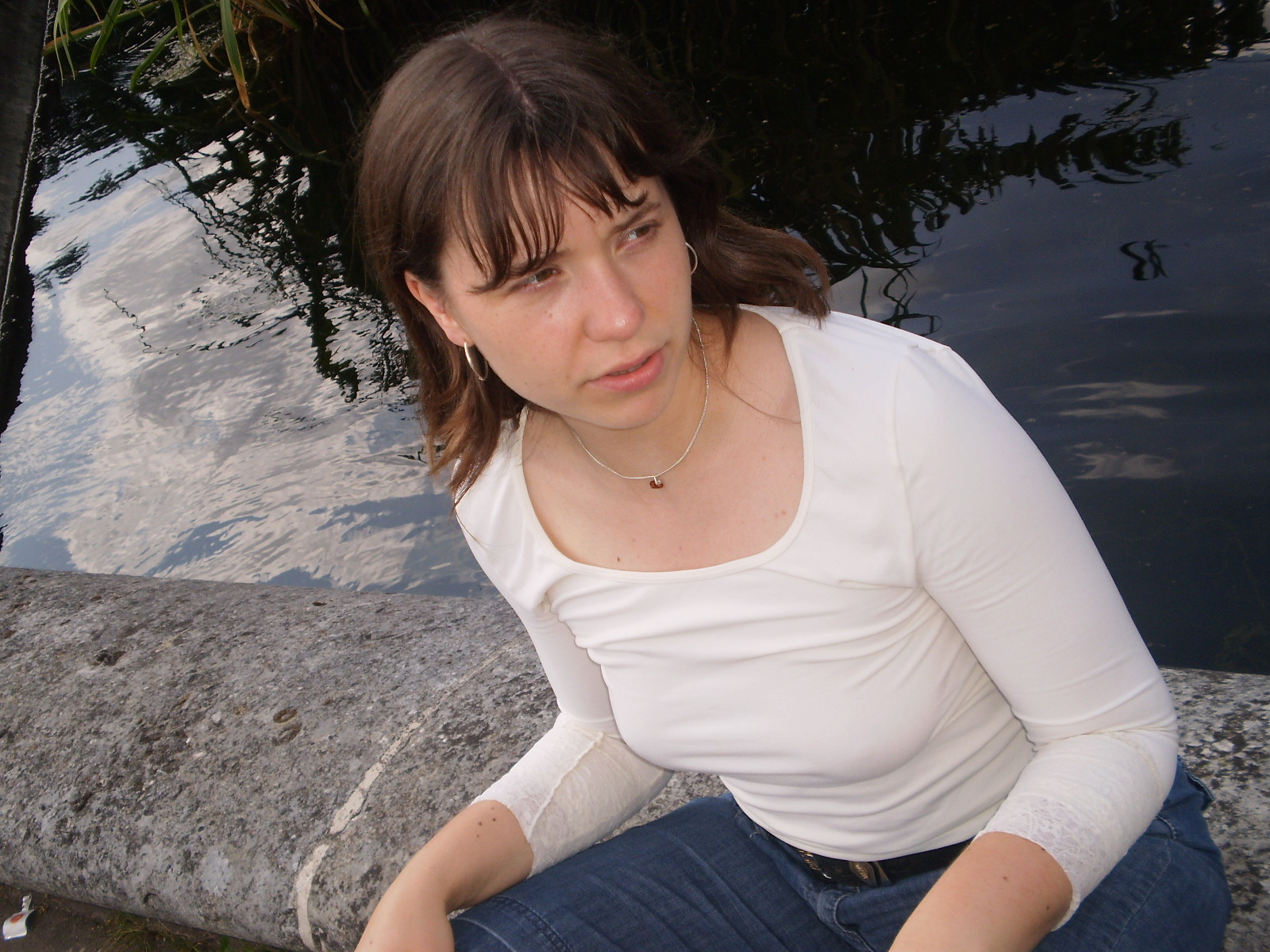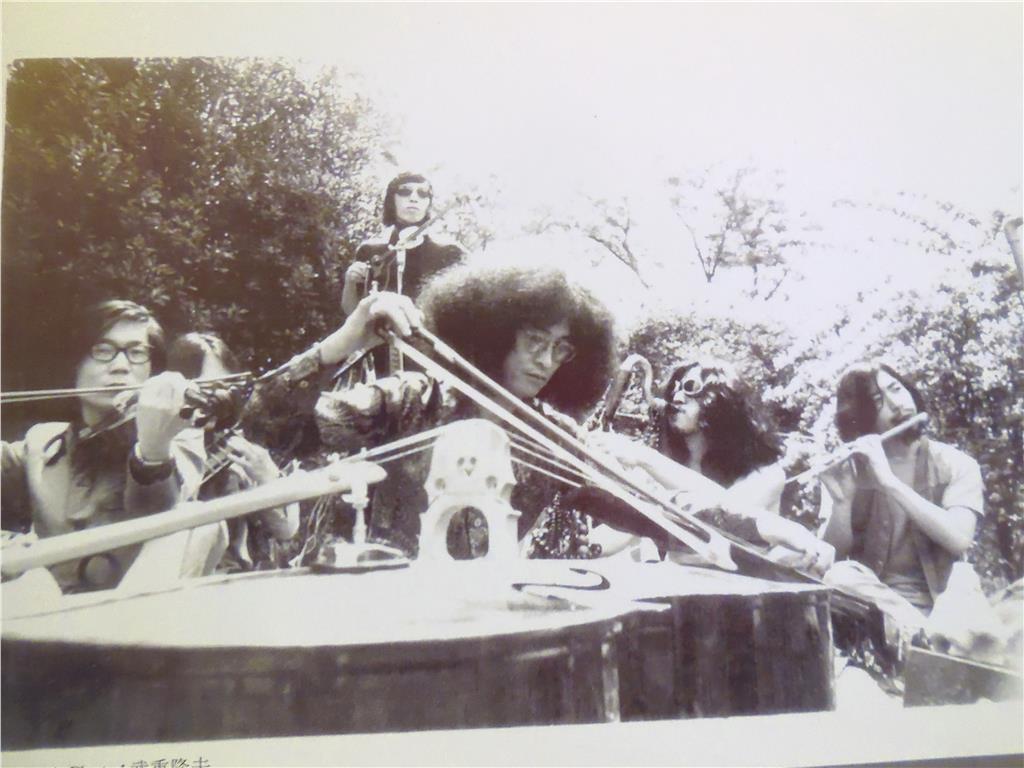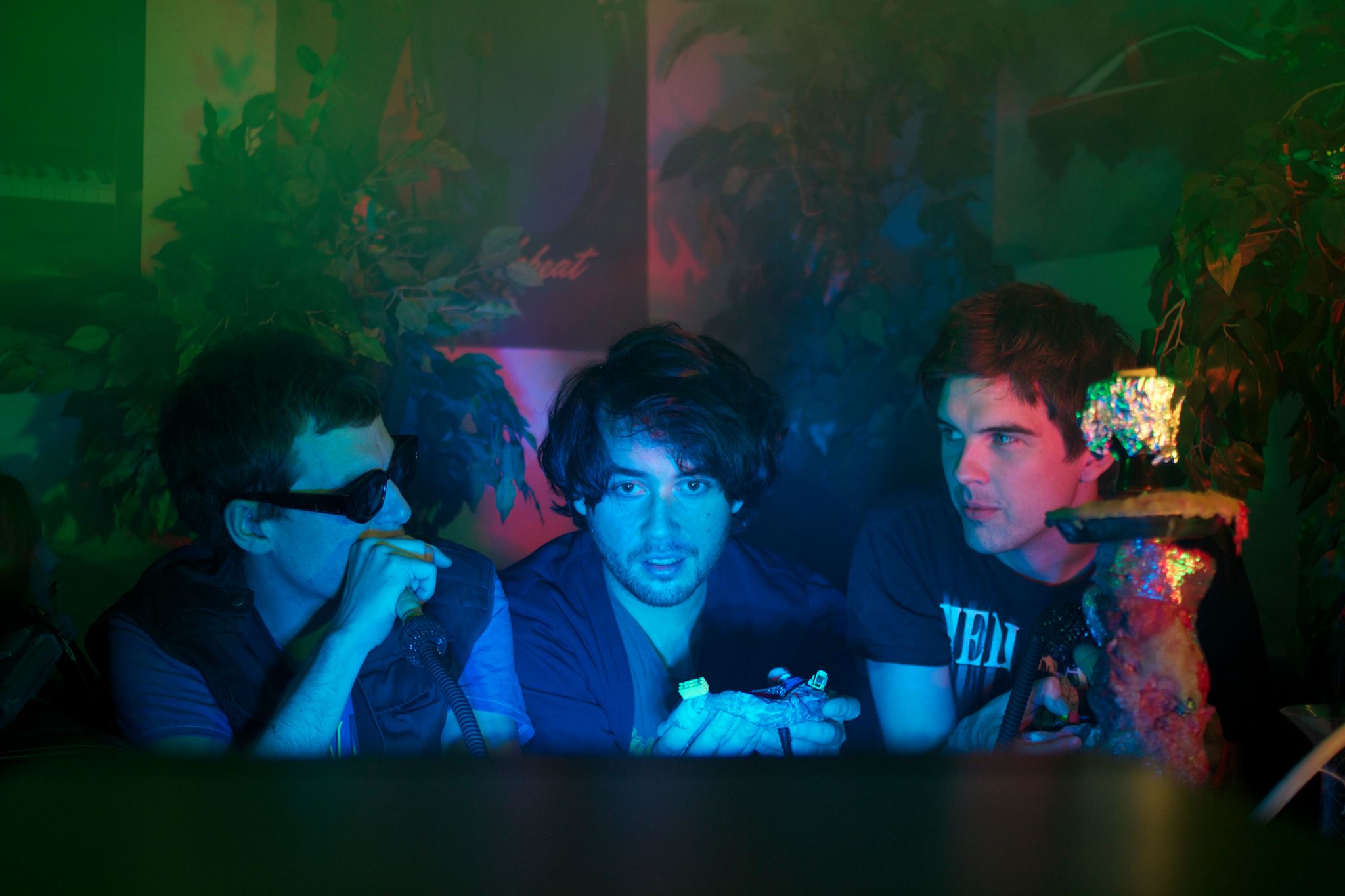Father Murphy – Italienske avantgardister fuldender Trilogy of the Cross (interview)
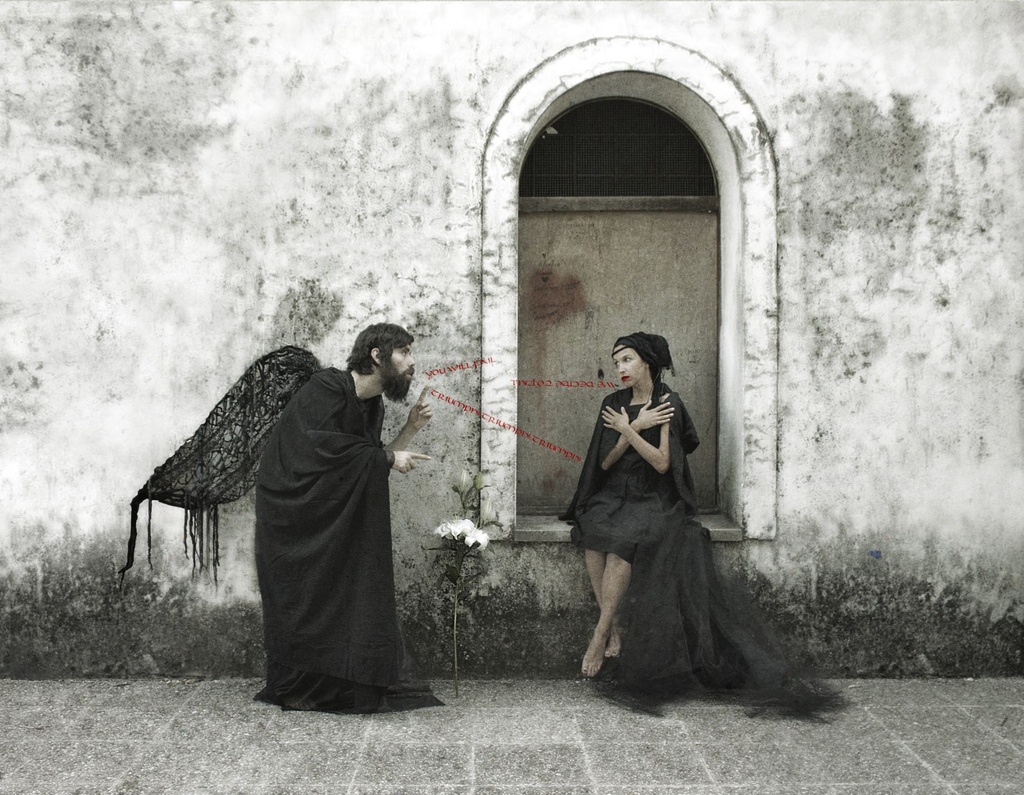
Af Simon Christensen
Den italienske gruppe Father Murphy har gang i et forrygende år, der har budt på intet mindre end tre udgivelser i bandets trilogy of the cross. Derfor er der nu optimale betingelser for at stifte bekendtskab med en evigt foranderlig kult (både i religiøs og populærkulturel forstand), der har en lang række større og mindre udgivelser på papiret siden 2005. Musikken er blevet mere og mere weird, men samtidig konceptuelt strammere og ekspressivt stærkere: et møde mellem støjens æstetik og en kirkelig messen.
Kernemedlemmerne er ‘Reverend Freddie Murphy’ og Chiara Lee, hvis musik allerede har fundet fans hos bl.a. Deerhoof, Dirty Beaches og Michael Gira fra Swans, men også til Danmark er der en forbindelse. Father Murphy har givet flere danske koncerter arrangeret af Escho og har turneret med Gud Er Kvinde og Iceage, hvilket måske giver en fornemmelse af spændvidden i Father Murphys projekt. Det religiøse aspekt har hele tiden udgjort en speciel overtone, fordi musikken eksplicit er inspireret af den katolske kirkes begrebsverden og sakrale lyd, men ofte med en mørk afstikker. Som en spirituel udforskning af den apokalypse (som kirken selv har opfundet) bevæbnet med droner og konkretmusik.
Om det religiøse har Reverend Freddie Murphy alias Federico Zanatta bl.a. udtalt: “We try to be as far from any kind of religion [laughs]. But we feel really attracted for the need of religiousness in our lives, but really it’s just another way to find empathy or people we love. But as for “religions” and something institutionalized, we stay away from that as far as possible. It’s sterile, dangerous, and suffocating. Dangerous, dangerous, dangerous. It’s funny, one of our relatives is involved with the Church and studied the Bible for several years, in Hebrew and Sanskrit and everything else. He said the worst thing that happened to Christianity was the Catholic Church.”
Father Murphys umage trilogi tæller både et kassettebånd, en ep og lp’en “Croce”, der som flere andre af deres udgivelser er produceret af Deerhoof-trommeslageren Greg Saunier. I forbindelse med udgivelsen af “Croce” tidligere på året interviewede jeg Frederico Zanatta til Passive/Aggressive. Det var oprindeligt tiltænkt en tryksag, der aldrig blev sat i verden. Derfor bringer vi herunder hele interviewet på engelsk, og hvis man er interesseret i flere lange tankerækker, kan Father Murphys blog varmt anbefales.
Info: “Calvary” er ude nu på Blue Tapes, “Croce” er ude nu på The Flenser, og “Lamentations” udkommer 20. november på Backwards.
Passive/Aggressive: Congratulations on your new album. Tell us how this album was made, and what is going on here on “Croce” in relation to your earlier stuff?
Frederico Zanatta: “We recorded “Croce” in New Mexico, while touring Northern America, with John Dieterich (Deerhoof), who also played percussions, bass, effects and sang in some tracks, and together with Heather Trost, who played violin and sang. Besides being both of them musicians that we love, we feel them very close, and knowing we had only few days to record it, it was great to be able to lock ourselves in with people we love and trust. We worked on “Croce” mostly during the tours we did between January and May 2014, and I think that the fact that we were constantly travelling influenced the way of writing it. It took time, but it all came as a whole. Each track is a different movement of a whole experience, where the so called Father Murphy character understands that it is only through Sacrifice that you can reach a possible Beatitude, it’s only through dedication that you can achieve something.
Each release of ours is a different concept about the path that this fictional character, Father Murphy, is undergoing in order to find his own place, to give voice to the feeling of religiousness that he feels so, so far away from institutionalized Religion(s). In “No Room for the Weak”, a 2010 EP, we tried to give sounds to an idea of mysticism, where Father Murphy gets to think that it is only through suffering that you can reach a real prayer. But it wasn’t enough. We kept digging, we were born and raised Catholics, so the Sense of Guilt is something that belongs to us, every day and every evening, so we had to get to the point where we had to deal musically with the Cross, as symbol, a parabole, where you understand that you always need to sacrifice something in order to get to a higher point, to a higher consciousness. Musically, we tried to go for a even more minimalist approach, working on more percussive sounds where the percussive moments contain more melodic elements than a regular percussion (and here John suggested to use several contacts mics, so that each instrument had several outputs we could then control in mixing), where the vocals more than before are long and drony sounds, as if human voices were trying to resemble celestial horns; where Celestial means also triumphant, and where triumphant means noisy and clangy.
Croce in Italian means cross. That’s the concept behind this album: the process that brings you there, to the Golgotha, on the cross. The power of the will, the torment of the indecision, the pressure, the oppression, the trepidation, the feeling of gasping, of suffering, of stammering, of aching, the misery in choosing the path to the cross, followed by the peace, the serenity, the ecstasy once that path has been chosen. The album deals with the two aspects of the cross with one side of the record sonically representing the suffering and sacrifice and the flip side reflecting what comes after; the end of said suffering, resurrection, or perhaps oblivion. That’s why side A is Sacrificio and side B is Beatitudine. It’s a story about the sacrifice but also about the beatitude that comes after that sacrifice.
“Croce” is split in two: The first 4 tracks describe the process of understanding and undergoing a sacrifice, movements are focused on low frequencies, questions and answers between different voices. The latter 4 are more like a slow progression to a triumphant dirge, with sounds that reflect how it feels to be high on dedication and devotion, where you really hear each beat to be underlining the consciousness you reached. As I mentioned earlier, we mostly use parabole to give an idea, an example of something that each one of us can prove or feel. We spent our youth always asking ourselves “Why?”, while now that our youth is somehow far we find ourselves in need to ask “How”?
Last but not least, as for our latest releases, “Croce” has been mixed by Greg Saunier who works on the mixing process alone, and then send the mixed tracks back. We 100% trust his work, we have learned so much from him, we somehow learned more of what we want and can achieve with our music. It’s been somehow magic working for this record with both John and Greg. We chose carefully our guardian angels.”
P/A: As regards Father Murphy’s approach to sound, what makes a SOUND interesting?
FZ: “Each sound that brings together a very clear image is powerful, as it helps in drawing an atmosphere. We think of sounds as different layers with which we can describe something. Over the years I think our approach narrowed into the attempt of emotionally describe a inner quest for truth, to find a sense; somehow the “religious” leitmotiv helps us in using an imaginery that we recognize as our own, even if our approach is surely heretical, and, in the end, sounds can be seen as another convention, as a language, but in a more figurative way. And the more you dig, the more you find, meaning that you can always go for a more minimalistic approach but yet you’ll find that even the most stupid situation brings with itself so many different sounds. In all this, we only use acustic instruments, from where we start in order to reproduce more synthetic sounds: sometimes we feel like we “ruminate” instead of only chewing and digesting sounds.”
P/A: From where do you draw your inspiration outside the musical sphere? Art, cultures, nature, people etc.?
FZ: “Religion and people would be maybe the immidiate answer.
Religion, as we both recall the first music we remember as kids to be the music we were listening to and then later singing in the church during the Mass. With all the negative aspects of Catholic Religion, at least musicality is a bright one, Churches are places where there’s always music in the air. Both C. Lee and I recall long and very tiring processions with the dark outside, with believers singing monotonous chants, and with spare percussions, for then gathering again in the Church, where thank God at that time you couldn’t play acustic guitar, so it was only possible to hear an organ or harmonium.
People because we travel so much that we meet so many wonderful human beings, from whom we learn of music, art, and literature we would have never heard of if we haven’t met them. There are so many bands we love all around, if people tell us that music nowadays sucks compared to the so called Past, we are so happy to disagree. We find urgence and real feeling in so much music and art that we can’t help but get influenced. William Burroughs, a writer that we love and from a short story of whom we took the name Father Murphy, always said to keep in searching and digging for other people’s art, and to be ready to steal from here and there and then transforming it in something of your own. Hail to the thief then.”
P/A: What are your thoughts on the use of religious symbols in your music and art? What is your relation to religion?
FZ: “Religion is something we found ourselves in when we were little, and it’s something we took distance from as soon as we became adolescents. But I think that once our teenager rage turned into a need for finding something real and personal to live with, we couldn’t help but to go back to all the feelings and scars and memories we had through all our deeply religious years. Luckily our families are open minded enough to believe in freedom, in a work of freedom when it comes to religiousness. But we come from a very self-righteous country, especially the region where we live. This whole thing of our music being the sound of Catholic sense of guilt starts from a cultural imposition that comes with Religion, and with us finding ourselves still rooted in this whole process of constantly questioning ourselves for every little move we do. Through music we exorcize a bit of this, we get rid of rigid behaviours we had, especially live we somehow vomit out feelings of guilt for then having a clearer vision on ourselves and on the world around us. In the end, we use a lot of religious symbols indeed, but mostly as paraboles for describing different situations that each one of us can find himself in. Religious imaginery helps when you have bold statements to express, and even if sometimes we sound maybe so far from daily life routine, we are simply trying to express how we, together with a lot of other people we like, are simply misfits trying to understand how and if to fit in this society of ours. I have said that we met and we keep on meeting amazing people, but this doesn’t mean we have that much sympathy for the human race.”
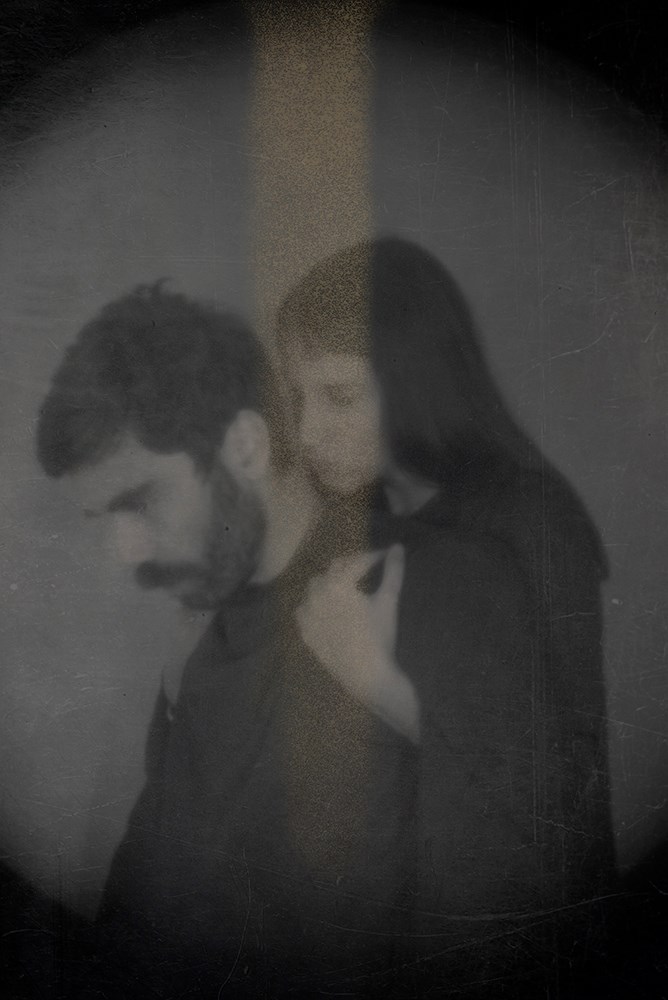
P/A: What inspires you musically? Your music seems to be transcending time from really old religious music and into avantgarde and noise music?
FZ: “We usually are inspired by all the music that strongly expresses something and leaves you with a precise feeling you can recognize thanks to the sound itself. Music that becomes the soundtrack of our days. Because we’ve been spending the last 5 years almost touring non stop, we have had the chance to be exposed not only to bands we played with, but also to so much different inputs and suggestions coming from all the people we met. We found out about Jacula, a pre death metal/prog Italian band from the late ’60s thanks to our dear friend Ezra Buchla, an american musician we worship. We got into old religious music from Sicily and south of Italy thanks to Luca Dipierro, the person who’s been taking care of representing our imagery with animated movies. We refer to Luca a lot not only for his work with us, but for being costantly giving us inputs and ideas with his work and with his visions toward Life, Death and taking very seriously only what you do, not who you are. In the same way we discovered Arvo Pärt and we’ve been exposed to the music of Carla Bozulich and Evangelista, that gave us so much also in terms of punk attitude.
As we haven’t spent more than few months in the same place in the last years, we’ve been feeling more and more a deep sense of transience toward things and people and life, so we try to use and to take advantage of each little suggestion or hint we can get from people we meet or moment or atmosphere we can feel and live.”
P/A: What is your view on improvisation, and how do you use improvisation in your live shows and as a ‘tool of composition’?
FZ: “We like improvisation as an exercise where you learn that you can play with your breathing, adapting the rhytms to your heartbeat, to your body. But each recording of ours comes from a deep work of writing: more than improvisation, we work with granting ourselves the chance to stretch a movement for as much as we need in order to be able to express a given atmosphere. During live shows it’s similar, with the difference that you feel the audience, and at the same time we want the audience to feel and experience the exact feeling we’re trying to express, so if needed we can “improvise” to stay on a sound or on a pause for as much as needed. There’s no letting people tripping, not at least at the beginning. You need to be focused and with us, it’s a journey, a downward spiral. The bottom is not necessarily always a bad place. For sure it’s the best place from where to restart.”
P/A: Being Italian, how do you relate musically to the Italian music tradition – and the strong tradition of soundtrack-composers, avantgarde musicians from your country in music history but also Italian pop music…?
FZ: “We are not big fans of Italian pop music, actually we never listened to bands or solo artists singing in Italian. The only songs where we like how Italian sounds are old folk songs, that somehow are always related to a vague idea of Sacre, being actually way rooted in ancient pagan traditions where the Rome Church built its basis, or are songs sung by soldiers especially during the First World War.
As for the tradition of soundtrack-composers and avantgarde musicians, I have to confess we don’t know that much about it; luckily we have people like Onga from Boring Machines that from time to time suggests to listen to this or that artist… As I mentioned before thanks to Luca Dipierro we got to know more about especially the tradition of sacre music for the Easter processions that are amazing examples of micro tonal singing.
As for Italian composers, I have always been a huge fan of Frizzi, especially his soundtracks for the movie series “White Collar Blues” (Fantozzi in Italian). And I suggest that you to listen to Teho Teardo’s work, not only his soundtracks but also his work with Blixa Bargeld and the soundtrack for a show based on The Wildermann photography book. Teho has been around since I was a kid, I went to see his former band Meathead when I was 17, and always been influenced by how he kept his punk attitude and fresh approach to music even if working on so many different projects, going from crazy arty music with Cop Shoot Cop, to the soundtrack for the latest Sorrentino movies.”
P/A: Can you tell us more about your relationship to the Danish music scene?
FZ: We’ve been lucky enough that our gateway through Denmark have been Nis Bysted and his Thulebasen, with whom we toured Denmark and Northern Europe for the first time some years ago, and that suddenly became one of our all time favourite band and folks. Thanks to them we had the chance to meet lots of great people, from Kasper of Smash!Bang!Pow! who booked us several times in Copenhagen and Denmark, to artist FOS, with whom we spent hours talking about so many different matters, last to be our obsession with Failure as positive and crucial moment in the lives of everyone, who invited us to perform at his Ooslo Boat at the Biennal of Venice, and who also asked us to be part of some Small White Man (that consists of FOS and Nis himself) recording sessions that was released and presented as a 12″ during the FOS exhibition at Charlottenborg in Copenaghen in March.
Thanks again to Nis we got to know and love Iceage’s music, and we’ve been honored to open some shows of their latest US and Canada tour; the bill in Montreal had another great Danish band, Lower. As for Gud and Kvinde, we got to know them and play with them in Amsterdam thanks to another person we love, Arnold De Boer from the Ex and Zea. As an old Italian saying tells, you have to be very careful in choosing the people you want to go with, and that sometimes it’s not enough, so you have to believe in a good Fortune. Hail to that.”
P/A: What is your view on the connection in Europe in the experimental music scene, and what does it do to help Father Murphy?
FZ: “One of the main reasons we’ve been able over the last few years to do some many tours and collaborations with different artists from all over the place is because there is a strong community made of promoters, bands and DIY spaces (sometimes even regular spaces with a great open minded wiew … two examples are Cave 12 in Geneve and De Kreun in Kortrijk); it’s not easy, but it’s surely possible to go out there and find people who are into listening to what you have to say, and giving you a space for doing it.
I mentioned the Ex earlier, I think they are an example for how they built relationships all over Europe in order to be able to tour and support their releases, at the same time giving a lot back to all the people they work(ed) with, in terms of attitude, inspiration, exposure and more. When I think of a scene, I think of a community, and as community I cannot think of only musicians, it would be impossible, you need to have lot of different figures, but at the same time you don’t want to go back to rigid roles as if it was a minor music business. I go for examples, it’s easier, even if the risk it’s always to forget someone… I’ll stay nearby you, and I would mention Escho (of course!), Koloni in Gothenburg, Mother Events and Oma333 in Stockolm… they are not only promoters, they are collectives, they act as label, they produce and they support releases, bands, artists. Is it hard? Of course. It is really hard. But again, without hard work, devotion and sacrifice, you won’t get any satisfaction. Nor Beatitude.”
P/A: Father Murphy changed into a duo now, right?
FZ: “Yes, it all needed to become more personal, the more personal we could, so the only way was to go C. Lee and I alone.”

